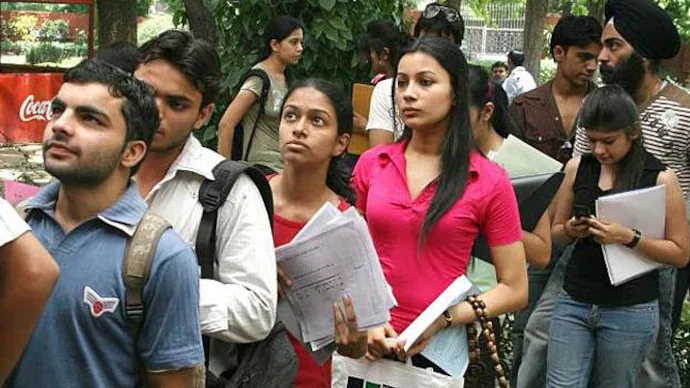A crippling 117-day delay in the publication of the West Bengal Joint Entrance Examination (WBJEE) results has sparked a severe admission crisis across the state’s undergraduate colleges. The results, finally released on August 22 after a court order, came too late for thousands of students who had already enrolled in premier national institutes or private universities, leaving state-run colleges with an alarming number of vacant seats.
Campuses Face Unprecedented Vacancies
The fallout from the delay is now starkly evident in colleges affiliated with Calcutta University, which are reporting some of the lowest enrolment numbers in years.
At AJC Bose College, which has over 3,000 seats, only 840 applications were received in the first admission phase. Former principal Purna Chandra Maity described the numbers as alarmingly low. “Post-Covid, we would typically fill 50–60% of our seats in the first phase. This year, we are struggling to even cross 1,000,” he stated, attributing the exodus to the legal complications and the subsequent rush towards private institutions.
The situation is equally dire at Lady Brabourne College. Principal Shiuli Maity reported receiving only 30% of expected applications in the initial round. She blamed widespread confusion over the new centralised admission portal and persistent delays for discouraging applicants. “Many students mistakenly believe that an allotment guarantees admission, but they fail to pay the fees or complete verification. Misleading advice from cyber cafés has made the situation worse,” she explained.
Data from the first merit list underscores the trend: of the 309,667 eligible applicants across 460 colleges, only 230,000 confirmed their admission. Professors fear that even after physical verification, the final enrolment figures will remain far below average.
Top Rankers Move On, Citing Delays
While state colleges struggle, top-ranking students from the WBJEE have already begun their academic year elsewhere. Aniruddha Chakraborty, the exam topper, is now pursuing Computer Science at IIT Kharagpur. “The results should have been declared much earlier. We’ve already lost a month of classes,” he said. Similarly, other high-achievers like Samyajyoti Biswas and Dishant Basu have settled into IIT Bombay and IISc Bengaluru, respectively.
This brain drain has left government colleges in a lurch, as private and central universities like St. Xavier’s and Scottish Church College started their sessions weeks ago.
Systemic Flaws and Shifting Student Priorities
Academics argue that the crisis runs deeper than just the delay. The perceived rigidity of the Calcutta University (CU) syllabus under the new National Education Policy (NEP) is also pushing students away. “At CU, passing all subjects, including internships and common value-based courses, is mandatory,” noted Shiuli Maity. “In contrast, private institutions offer far more flexibility, which is reducing interest in traditional subjects.”
This shift is affecting specific disciplines. Professor Purba Chattopadhyay, Head of Home Science at CU, observed a drastic drop in admissions for Human Development, with only 15–16 students enrolling so far. “Students are losing interest in Human Development due to career uncertainty,” she said. She added that students are increasingly drawn to private colleges that offer pathways to modern careers like content creation, leading to a gradual decline in the pursuit of core academic subjects.
The four-month ordeal has not only disrupted academic calendars but has exposed a deeper crisis. Without timely reforms to streamline admissions and adapt to changing student aspirations, West Bengal risks a continued exodus of its brightest minds, leaving its own institutions struggling for survival.


